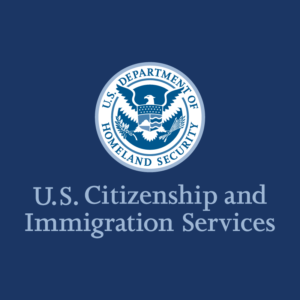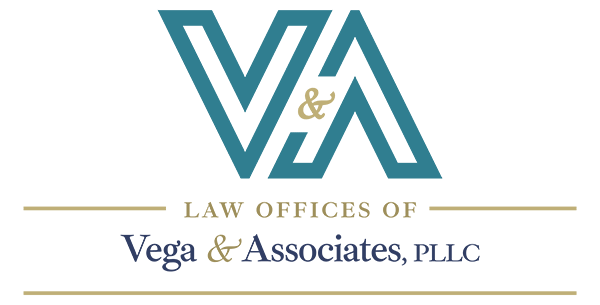The Department of Homeland Security is agreeing to share citizenship information with the U.S. Census Bureau. The Department of Homeland Security announced in a report two weeks ago that the agency would share administrative records to help the Census Bureau determine the number of citizens and non-citizens in the U.S., as well as the number of immigrants in the U.S. illegally. Information to be shared includes personally identifiable data but federal law prohibits the Census Bureau from releasing personally identifiable data. The agreement was made in response to President Donald Trump's order to collect data on who is a citizen...
On December 20, 2019, in AOL v. Wolf, the Ninth Circuit granted the government’s motion for an emergency temporary stay of the district court’s order enjoining the application of the Trump administration’s July 16, 2019 asylum ban to thousands of asylum seekers who were unlawfully prevented from accessing the U.S. asylum process, through a policy known as “metering,” before the ban went into effect. The stay of the district court’s order will be in place until the appellate court decides the government’s motion for a stay pending appeal. The Ninth Circuit set oral argument on the motion for a stay...

Form No. Form Title Current Fee Proposed Fee Difference Percent Change G-28 Instructions for Notice of Entry of Appearance as Attorney or Accredited Representative N/A N/A N/A N/A G-1041 Genealogy Index Search Request $65 $240 $175 269 percent G-1041A Genealogy Records Request $65 $385 $320 492 percent I-90 Application to Replace Permanent Resident Card $455 $415 -$40 -9 percent I-102 Application for Replacement/Initial Nonimmigrant Arrival-Departure Document $445 $490 $45 10 percent I-129 Petition for a Nonimmigrant Worker $460 *DHS is proposing to separate Form I-129 into several forms. See below. I-129F Petition for Alien Fiancé(e) $535 $520 -$15 -3 percent...
May your holiday season be filled with peace, hope, and joy. We would like to thank you for your continued, support, loyalty, and friendship. Sincerely Law Offices of Adan G. Vega & Associates, PLLC Immigration Attorneys 122 Tuam Ste. 200 Houston, Texas 77006 - 3214 [phone-number] (fax)713. 523. 5619 www.adanvega.com avega@adanvega.com
U.S. Citizenship and Immigration Services on Friday, December 20, 2019, updated the USCIS Policy Manual to clarify the effect of travel outside the United States by Temporary Protected Status (TPS) beneficiaries who are subject to removal proceedings. TPS beneficiaries in removal proceedings who travel abroad temporarily with an advance parole document and authorization of DHS remain subject to those removal proceedings. If they are under a final order of removal, the travel does not execute or fulfill the order. The TPS beneficiary in question remains subject to the removal order. The Executive Office for Immigration Review of the Department of...
On May 31, 2019, new questions were added to the Forms DS-160/DS-156 Nonimmigrant Visa Application and Form DS-260, Immigrant Visa Application. These additional questions require the foreign national to disclose five years of social media and contact history when applying for a nonimmigrant or immigrant visa. This information was previously requested only on Form DS-5535, Supplemental Questions for Visa Applicants. In the newly updated forms, applicants are now required to disclose the social media platforms they have used within the previous five years, as well as provide their username(s) for each platform. This information is collected via a drop-down list...
Under the INA, the federal government may deny admission or adjustment of status to noncitizens who are “likely at any time to become a public charge.” 8 U.S.C. § 1182(a)(4)(A). By the plain terms of the statute, the public charge assessment is a prediction about how a noncitizen might respond to their circumstances in the future. USCIS typically conducts its Section 212(a)(4) public charge assessments in one of three situations: (1) when a noncitizen applies to physically and lawfully enter the United States (admission), (2) when a noncitizen applies for adjustment of status, also known as becoming a lawful permanent...
On November 2, 2019 a federal judge in the U.S. District Court in Portland, Oregon issued a temporary restraining order (TRO) and halted implementation of the administration’s attempt to ban immigrants based on their ability to obtain health insurance upon arrival to the U.S. The TRO has stopped the federal government from implementing the policy for now as the court considers the full merits of the case, Doe v. Trump, in the coming days and weeks.

U.S. Citizenship and Immigration Services announced that beginning on Nov. 29, 2019 the fee to request premium processing for certain employment-based petitions will increase to $1,440 from the current fee of $1,410. Premium processing is an optional service currently authorized for certain petitioners filing FORMs I-129 or I-140 to request 15-day processing of these forms if they pay the extra fee. The premium processing fee is paid in addition to the base filing fee.

